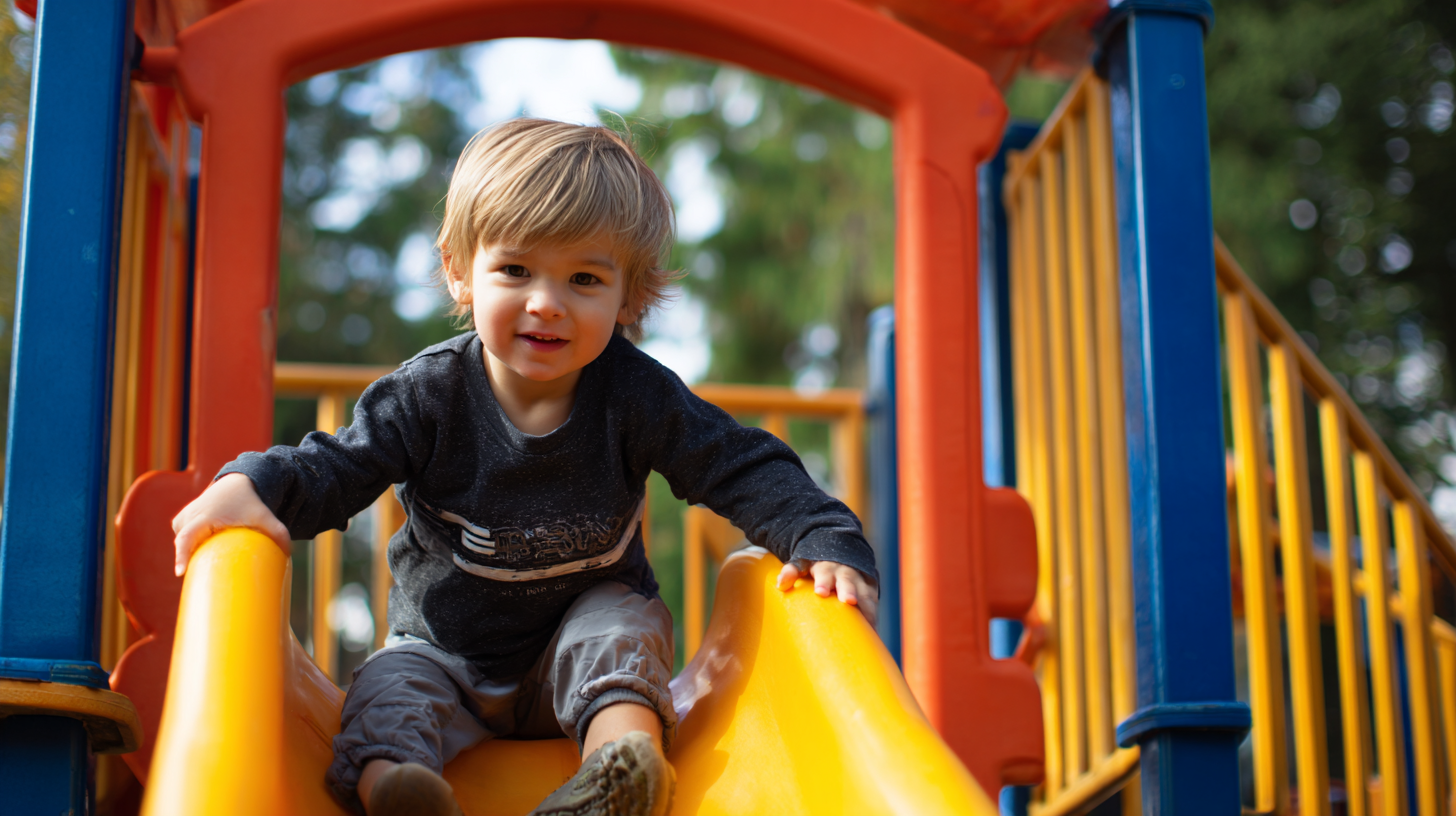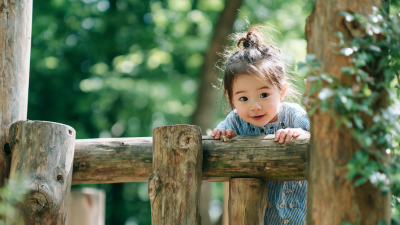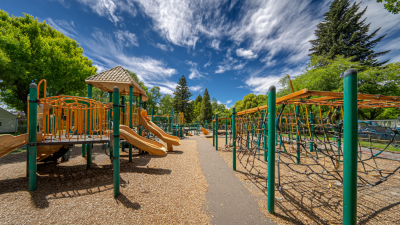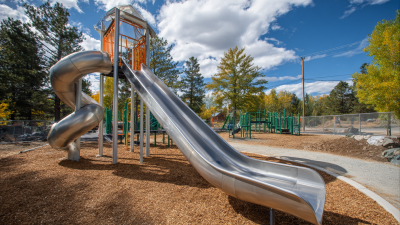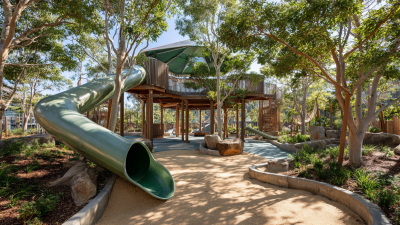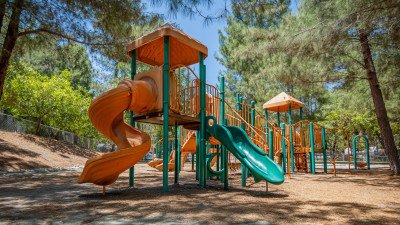 +86-13901441113
+86-13901441113




Engaging children in physical activity is crucial for their healthy development, and one of the most enjoyable ways to achieve this is through the use of Outdoor Play Slides. According to the Centers for Disease Control and Prevention (CDC), regular physical activity can significantly reduce the risk of several health conditions, including obesity and heart disease, which are increasingly prevalent among children today. A study published in the Journal of Pediatrics highlighted that active play, including climbing and sliding, enhances not only physical fitness but also social skills and cognitive development. Furthermore, the American Academy of Pediatrics emphasizes the importance of outdoor play in fostering creativity and problem-solving abilities in children. By incorporating Outdoor Play Slides into recreational environments, we can promote an active lifestyle that supports both physical and mental well-being, laying a foundation for healthy habits that last a lifetime.
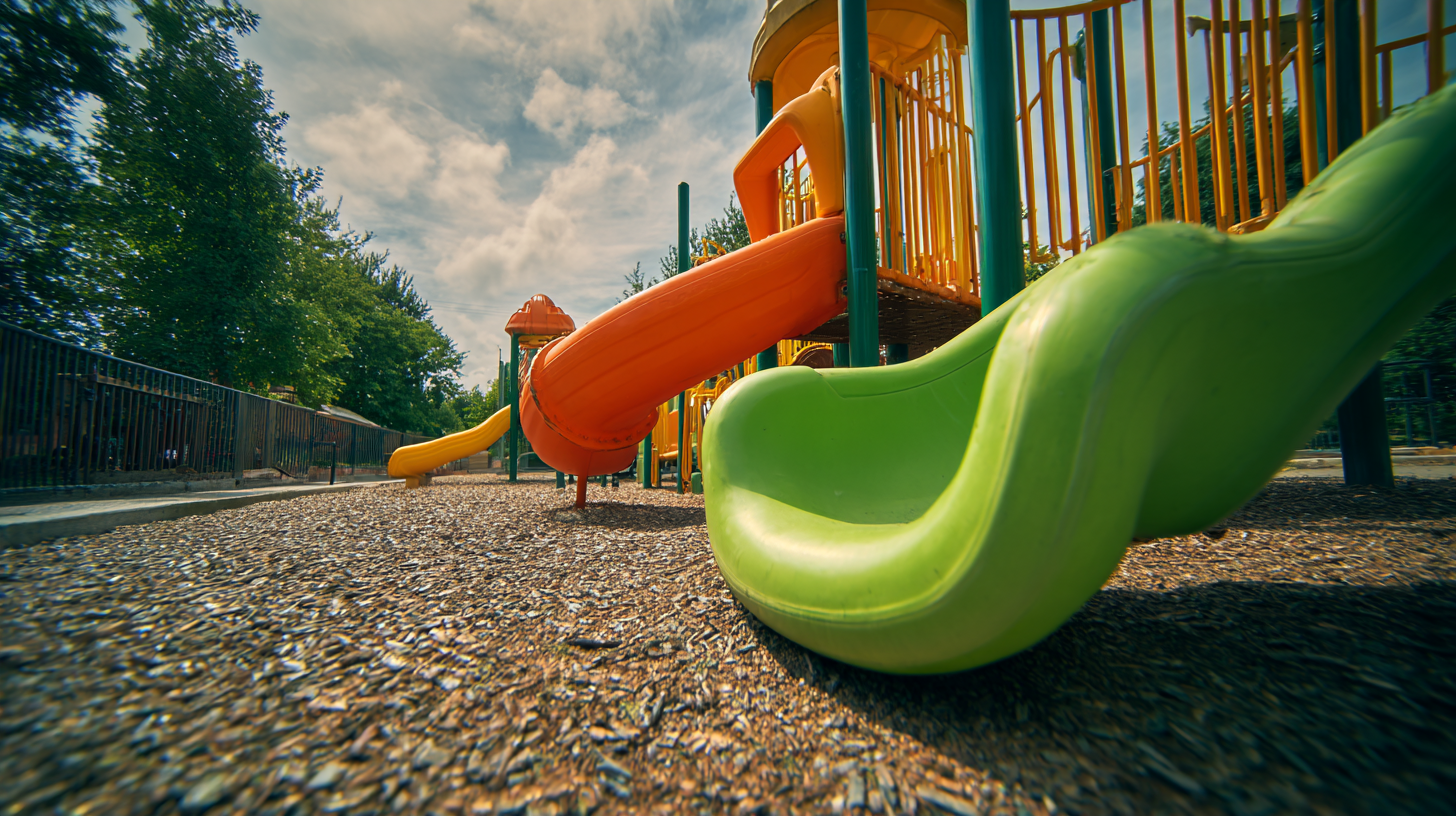
Outdoor play is essential for children's development, contributing significantly to their physical, emotional, and social well-being. According to research, children who engage in regular outdoor activities are more likely to develop strong motor skills and improve their overall fitness levels. Studies show that children who play outside for at least one hour a day have lower obesity rates and exhibit better cardiovascular health compared to those who spend more time indoors. This connection highlights the importance of encouraging outdoor play as a fundamental part of a child's daily routine.
Furthermore, outdoor play fosters social skills, which are critical for a child's development. Engaging in group activities, such as playing on slides or in playgrounds, allows children to learn cooperation, conflict resolution, and communication skills. Statistics indicate that children who frequently play in outdoor settings develop stronger friendships and demonstrate higher self-esteem. The natural environment provides opportunities for imaginative play, which is vital for cognitive development, enabling children to explore their creativity while boosting problem-solving abilities. Prioritizing outdoor play can provide children with a well-rounded foundation for a healthy and active lifestyle.
| Statistic | Value | Source |
|---|---|---|
| Percentage of children that do not get enough physical activity | 80% | Centers for Disease Control and Prevention (CDC) |
| Recommended hours of outdoor play per day | 1-2 hours | American Academy of Pediatrics |
| Increase in physical activity from slide use | 30% | Journal of Physical Activity and Health |
| Children's cognitive skills improved by outdoor play | 25% | National Wildlife Federation |
| Proportion of parents that believe outdoor play is essential | 90% | Child Development Research |
Physical activity plays a crucial role in children's health and wellness, particularly in the context of rising obesity rates and mental health challenges. Engaging in outdoor play and sports not only helps to improve physical fitness but also contributes significantly to mental well-being. Research highlights that regular physical exercise can alleviate symptoms of anxiety and depression, enhance self-esteem, and foster social skills. Children who actively participate in physical activities are more likely to develop healthier coping mechanisms, leading to better emotional regulation and overall mental health.
Despite the known benefits, a concerning trend has emerged, as recent reports indicate that many children are not meeting the recommended levels of daily physical activity. Studies reveal that only a small percentage of children engage in the necessary hour of activity each day, highlighting a pressing need for increased participation in sports and outdoor play. To combat these issues, fostering an environment that encourages outdoor play, such as the installation of play slides and recreational facilities, can be instrumental. Not only do such activities promote physical health, but they also create opportunities for children to thrive socially and emotionally, paving the way for a healthier future.
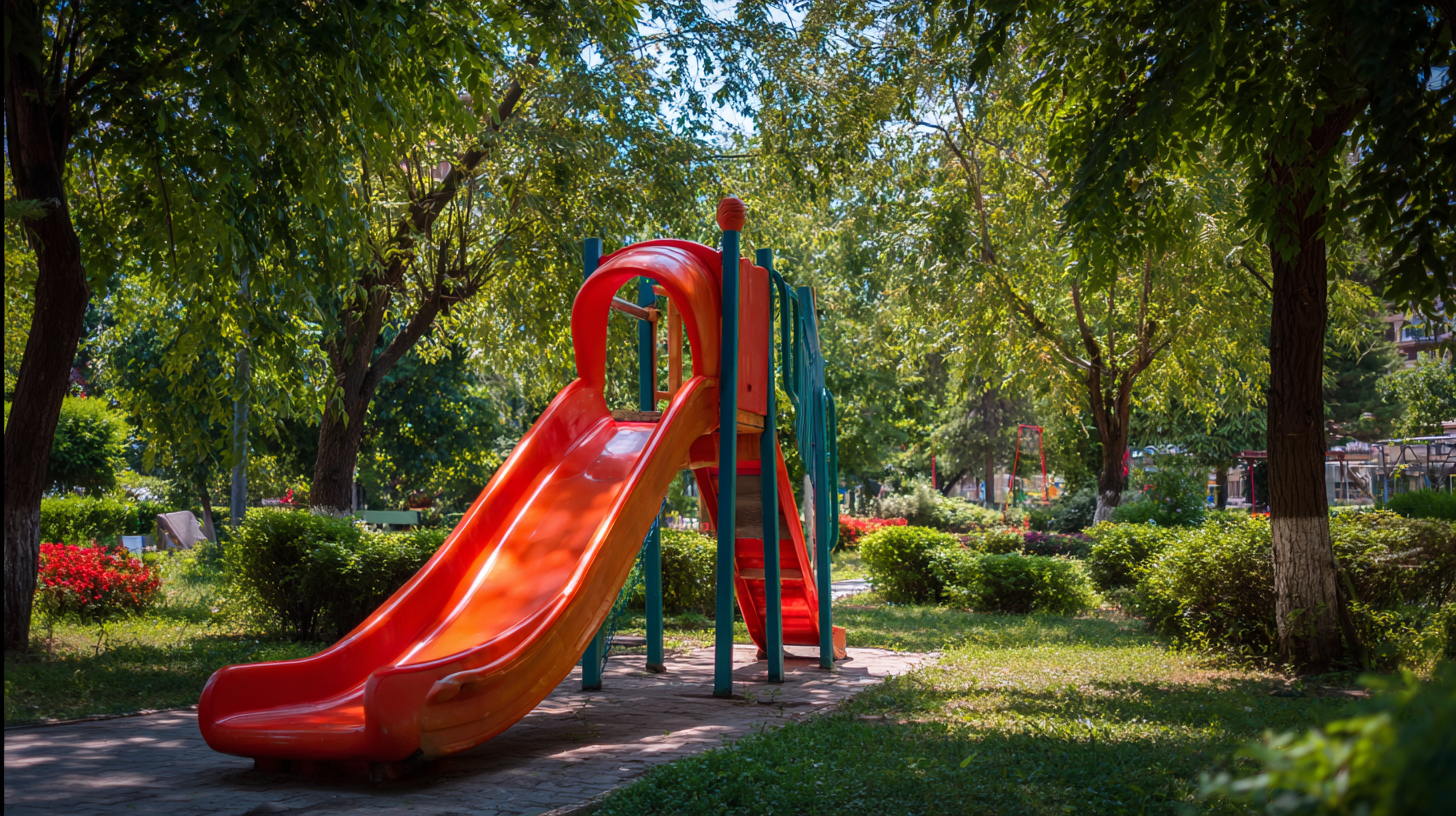 Outdoor play structures, particularly slides, offer a myriad of benefits for children's physical and cognitive development. According to the American Academy of Pediatrics, active play is essential for children's overall health, aiding in the prevention of obesity and promoting motor skills. Slides, swings, and climbing structures encourage children to engage in vigorous physical activity, significantly improving cardiovascular health and muscle strength. Furthermore, research from the National Association for Sport and Physical Education indicates that outdoor play can enhance social interactions, helping children develop teamwork and communication skills.
Outdoor play structures, particularly slides, offer a myriad of benefits for children's physical and cognitive development. According to the American Academy of Pediatrics, active play is essential for children's overall health, aiding in the prevention of obesity and promoting motor skills. Slides, swings, and climbing structures encourage children to engage in vigorous physical activity, significantly improving cardiovascular health and muscle strength. Furthermore, research from the National Association for Sport and Physical Education indicates that outdoor play can enhance social interactions, helping children develop teamwork and communication skills.
Tips for Parents: Encourage your child to explore various types of outdoor play structures. Sliding down a slide not only builds confidence but also helps in developing balance and coordination. Consider arranging playdates in parks with diverse equipment to promote healthy competition and cooperative play among peers.
Additionally, sensory play in outdoor environments stimulates cognitive growth. Structures like climbing walls engage children in problem-solving and risk assessment, fostering their ability to think critically. Studies show that children who engage in unstructured outdoor play exhibit more creativity and improved attention spans, making it vital for parents to prioritize ample outdoor playtime in their daily routines.
Encouraging outdoor play is essential for fostering a child's physical and mental well-being. According to the Centers for Disease Control and Prevention (CDC), children aged 6-17 should engage in at least 60 minutes of physical activity daily. Outdoor play, including activities on play slides, promotes not only physical fitness but also social skills and creativity. Moreover, research published in the Journal of Environmental Psychology highlights that outdoor play boosts children's mood and reduces stress levels, contributing to overall healthy development.
To create a safe and engaging outdoor environment, parents can implement several best practices. Firstly, ensure that play equipment, such as slides, is age-appropriate and installed in a safe area with soft surfaces to minimize injury risks. Secondly, encourage children to involve their peers in outdoor activities to foster teamwork and communication skills. Tips like setting a weekly playdate routine or visiting local parks can also enhance children's eagerness to participate in outdoor play.
Lastly, consider incorporating structured activities alongside free play. For instance, organize obstacle courses or scavenger hunts that encourage children to explore and stay active. By balancing unstructured play with guided experiences, parents can promote physical activity while allowing children the freedom to innovate and discover their surroundings safely.
Encouraging outdoor play is essential for children's healthy development. This chart illustrates the average minutes of outdoor play per day across different age groups, highlighting the importance of physical activity in early childhood.
Regular outdoor play significantly contributes to the cognitive and social development of children. Engaging in physical activities, such as playing on slides, encourages imaginative play and creativity. These activities stimulate the brain, fostering problem-solving skills as children navigate their environment and interact with peers. As they figure out how to climb, slide, and share equipment, children enhance their cognitive abilities, including spatial awareness and motor skills.
Moreover, outdoor play promotes essential social skills in a natural setting. As children engage in play with others, they learn to communicate, share, and resolve conflicts. These interactions build resilience and empathy and help children understand social norms. Regular exposure to diverse playmates further enriches their social experiences, preparing them for future collaborative environments in school and beyond. Thus, the benefits of outdoor play go far beyond physical health, laying a foundation for well-rounded cognitive and social skills that will serve children throughout their lives.
